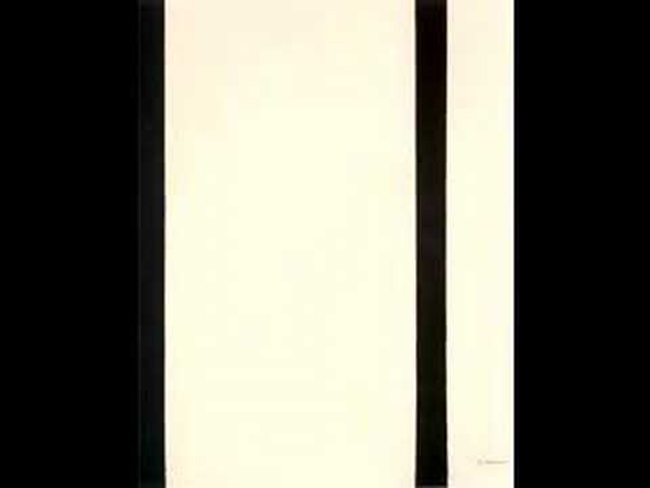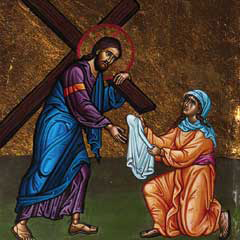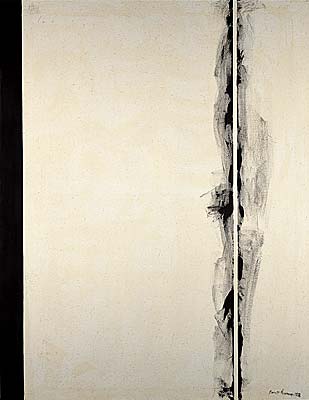
This piece originally appeared four years ago. It reappears for today’s occasion, with a few necessary revisions. Happy Easter.–PT
As a young boy in Lebanon, church wasn’t an option for me and my brothers. We had to attend. We had to survive. Every Sunday. It was our weekly Guadalcanal. Libertine priests had nothing to do with the horrors. Ours in their bushy beards and bad breath tended to be chaste, as far as we knew, or at least publicly so, although god knows Lebanese babes veiled in black lace and smirking rouged lips filled the congregation while the rest of us boys rotated through altar-boy duty with harem-like variety. I can imagine our priests telling mass in a mixture of Aramaic, Arabic and other gibberish, speaking in tongues to hide their delirium behind verbiage they assumed none of us could understand. And didn’t the women in the congregation manage invariably to show up without husbands?
 My mother would let me and my middle brother escape to the garden in front of the archdiocese for a few minutes during the sermon, the part in the service that teases eternity. For all her piety my mother always had heart enough to know the limits of god’s dominion on her boys, especially when it posed as mean-spirited and squinty-eyed Jesuit teachers at school. But escaping sermons wasn’t enough. Church wasn’t just a bore. It was hell, especially since my mother never let me take a book along.
My mother would let me and my middle brother escape to the garden in front of the archdiocese for a few minutes during the sermon, the part in the service that teases eternity. For all her piety my mother always had heart enough to know the limits of god’s dominion on her boys, especially when it posed as mean-spirited and squinty-eyed Jesuit teachers at school. But escaping sermons wasn’t enough. Church wasn’t just a bore. It was hell, especially since my mother never let me take a book along.
No wonder then that as far back as my memories of church go, what I remember most aren’t the smells of incense or priestly halitosis or the sighs and sights of girlish ankles just so exposed from the confessional. What I remember most were the Stations of the Cross.
They hung, all twelve or thirteen or fourteen tableaux, around the church walls in sequence, like panels in a comic book but more attractive for their darkness and violence, for the mysteries to which they lent themselves even though I knew, from my earliest days as a Good Catholic, how the story ended. (The Golgotha ending, not the syrupy Hollywood one tacked on at the end of the Gospel to ensure better sales.)
I’m writing this as if assuming that most people know what the Stations of the Cross are. But at least seven-eighth of the population of the globe has no reason to know, and nine-tenth of Americans, where Christianity tends to be more hammer and sickle doctrine than beatitude, prefer to tailor their Biblical knowledge more to pieties than understanding. That’s not to be critical necessarily. The Bible doesn’t make it easy, especially in the wrong hands. My Christian upbringing was more torture than Christian(and to countless fellow-Lebanese, the torture, received and meted out during the civil war in the name of those teachings, was literal). I shouldn’t want it inflicted on anyone. But a little civilizational knowledge isn’t a bad thing, if only it–religion class included–could be taught in schools free of doctrinal muck.
Briefly put, the Stations of the Cross is Christ’s Passion and death from the moment he’s condemned to the moment he’s laid to rest in that tomb from which, Merlin-like, he’s alleged to have risen three days later. Along the way he travels the road to Golgotha with his cross—with a little help from Simon of Cyrene—to his date with crucifixion. He suffers more taunts and jeers of what must have been a bunch of ancestral Red Sox fans, drunk as ever. He falls three times, isn’t unkind to a slut who wipes away his blood with her veil, he’s stripped, nailed to the cross, ripped with a sword on his left side, and after a while removed to his tomb, turning over the rest of the story to CSI: Ascension. (That’s the unfortunate Hollywood part, like the last feel-good chapters of Job.)
 I kid now. As a kid then, the Stations represent an overwhelmingly moving series of events that absorbed and sometimes flattened me with their power. My mother aside they were the only meaningful thing around me at mass time, the only Truth with a big t that I could see in those churchy surroundings. It wasn’t the religious aspect of the Stations that meant anything to my 9-year-old eyes. It was their human quality, the beauty and calamity of Christ’s suffering as a human being, and the universe of interpretation his march through those Stations demanded. Each Station, each frame, was a world to be filled in every Sunday, every scene a flood of the human experience at its most fundamental and irreversible.
I kid now. As a kid then, the Stations represent an overwhelmingly moving series of events that absorbed and sometimes flattened me with their power. My mother aside they were the only meaningful thing around me at mass time, the only Truth with a big t that I could see in those churchy surroundings. It wasn’t the religious aspect of the Stations that meant anything to my 9-year-old eyes. It was their human quality, the beauty and calamity of Christ’s suffering as a human being, and the universe of interpretation his march through those Stations demanded. Each Station, each frame, was a world to be filled in every Sunday, every scene a flood of the human experience at its most fundamental and irreversible.
I didn’t understand the images intellectually, which is to say I understood them as the Passion should probably be understood first anyway — intrinsically: cruelty, suffering, compassion, frailty, mercy, courage, but the courage of others, not that of Christ. Christ wasn’t courageous in the more modern, more martial sense of the term. Courage in his circumstance would have demeaned the purpose of his Passion, as if he were trying to prove something to himself or, worse, others. He gave himself no choice, which isn’t courage but something superior because less self-referential: a form of supreme conviction without expectation of the reward later Christianity superimposed on the moment. A courageous man would have been too proud to say, “Eli, Eli, lama sabachthani?”—why have you abandoned me? Christ says the words in the ninth hour, maybe even the ninth panel, “when there was darkness all over the land,” because he isn’t a soldier doing his duty, smugly taking solace from adversity. He is humility and humanity to the core. He is honesty and truth. And so he says, Eli, Eli… and dies.
[media id=188 width=250 height=100]
Listen, to the right, to how J.S. Bach in his St. Matthew Passion renders the moment, to the following words:
Be near me, Lord, when dying
O part not you from me!
And to my succor flying,
Come, Lord, and set me free!
And when my heart must languish
In death’s last awful throe,
Release me from my anguish,
By your own pain and woe.
[media id=189 width=250 height=100]
Listen to the same moment as Bach renders it in his St. John Passion.
No matter how visually shocking, the Stations to the eyes of a 9 year old couldn’t have evoked more than impressions, something instinctive but incomprehensible: How could everything surrounding me in church be speaking peace and love when the writing on the wall was hatred and violence? A 9 year old could only sense the disconnect, not express it. Not that the same 9 year old four decades later can do better. It takes something else, and Bach has it, to convey the simple truth that the disconnect is as real as its transcendence, which maybe begins to explain the Passion, though who among us could ever hope to do more than taste it, to sense the transcendence the same way 9 year old eyes could sense the incomprehensible truth of the Stations?
The mystery of it all is alluring, and I suspect the allure is where it ends more often than it should, giving way to the convenient formula of Easter Week sermons: it’s not for us to understand, only to believe. Or worse: to believe the Sunday-school convention that He died for our sins. There’s something materialistic in all that, as if it were a transaction we can profit from: if only we fill out this form and recite this prayer and do this and that. Maybe we’d rather not be more directly implicated. So we project, and thanks to Christian doctrine’s Achille’s heel–literalism–we hide behind the story’s factualism: His cross, he bore it for us, thanks, mate, we appreciate it and make a fuss once a year. Just let us be on our way. As for the truth of the story, well, that beyond our pay grade. We’re mere humans, after all. But isn’t that Christ’s point? So was he, from start to finish. Making him more than that cheats the meaning of the Passion, making it more grand while making it less true, and absolving us of our responsibility for it. What I could not understand, looking at those Stations as a boy, what I never wanted to see, was that the hate was so familiar. The delusion was that the panels represented something removed in time or place. The less comfortable reality was that they were as current as ever. The problem with He died for our sins is the convenient tense. Christianity translated it as past, which may itself be Christianity’s original sin.

Good thing a young mind doesn’t reach those conclusions. It couldn’t survive long. I looked at those fourteen images then mostly for entertainment, to transcend the boredom of the service. But no matter how often I looked at them, no matter in what church—for they were good enough to follow me in every Lebanese church I attended—there was always more to them that demanded something, and not just from the imagination. They were stamping their impressions in me all those Sundays so that decades later, without having returned to Church for years, they’re still the most evocative part of my upbringing, if not the most fruitful: As an adult long exiled from anything Catholic I am moved to this day by the mere thought of the Stations.
They don’t have the Stations in American churches too often. Maybe they’re worried the images would scare the kids, offend the elderly, distract those in between from giving up their dollars and knickers. If there ever was a chance I’d return to the Church, American churches ensured I never would: too sterile, too similar to Wal-Mart shelving aisles, too stacked with congregants who look like spiritual accountants. Coming to America sealed my Fall.

As ironies go, it also meant discovering the greatest Stations of them all. Barnett Newman’s “Stations of the Cross,” fourteen paintings, called abstract but not really, in a subterranean room of the National Gallery in Washington, D.C. I know next to nothing about Newman or the works’ genesis, other than that he painted them between 1958 and 1966. “They have a certain interest as talismans of early Minimalism,” the critic Robert Hughes wrote of them, “but as a narrative of the passion and sacrifice of Christ they are utterly vacuous.” I don’t agree of course. They’re all passion and sacrifice. There is emptiness, austerity, silence, but not vacuity. No work is identical to two viewers, no work means the same to any two viewers. The work stands on its own, reconnecting with something timeless. We all have our places of pilgrimage, from mountains to works of art we travel half the world to see. Newman’s “Stations” is the work that takes me back to that subterranean gallery of my childhood, the white room illuminated by the fourteen canvasses in Washington as bright as the memories of gloom from those Sundays in church back in Lebanon, although the feeling is not so gloomy anymore. We age, we accept. We learn that the sublime needn’t be merely beautiful to be true.
I’ve never understood the paintings and never tried. I don’t walk, panel after panel, looking to figure out what this vertical black means, what that jut sideways suggests, what Barnett Newman meant. I sit in the middle of the room, and there, the feeling is as inexplicable as it was when I was nine. Explication would be redundant. Into the Stations I commit my spirit.
![]()
Pierre Tristam is FlaglerLive’s editor. Reach him by email here or follow him on Twitter.
![]()
I found this engaging rendition of Newman’s “Stations of the Cross,” a complete visualization of the 14 panels, set to Explosions in the Sky’s “Your hand in Mine.” It’s particularly valuable for reproducing all 14 paintings at a slow, heartbreaking pace. When I imagine Christ in a band, I imagine him a drummer.





























Lin says
Pierre,
I want to thank you for this today on Easter.
The family has left, food was good and my husband is watching the movie Killing Jesus but I just can’t get into it.
I am Catholic and the piece brings some voice to the contradictions and questions in my head. My heart breaks for the faithful of the religious suffering the horrors right now all over the world. The Catholic Churches I grew up in did have the stations but most now are bare. At the Vatican and in tiny churches richer and poorer there is more to stir the soul and spirit. The most beautiful art I have ever seen at St Peters. But I know that faith comes from within not outside.
Organized religion and its politics are deserving of criticism but many good works are done by religious people and I will argue anyone making the generalization that believers are —-ist, fill in the blank with any number of insults. There is a war against Christians and Jews right now along with those on the wrong side of Islam and I don’t see any way to stop it.
Back to you & me — I pray every night and sometimes I am sure the story is all true (I have faith) and sometimes I can’t make the connection. I appreciate your voice. But these stations — I don’t see anything.
Nancy N. says
Let me get this straight:
* In the last week, two states have passed laws legalizing discrimination against entire classes of people as long as you use your religion as the reason, and in one state the governor was flanked by extreme Christian conservative activists while signing the bill
* California voters are currently being asked (by a fundamentalist Christian sponsor) to sign petitions for a state constitutional amendment to execute gay people
* The U.S. Supreme Court made it legal last year in a lawsuit brought by fundamentalist Christians for employers to impose their religious views in their employees’ bedrooms and doctors’ offices
* Last week, one Christian politician made national news for saying that church attendance should be mandatory, and another for saying it was ok to discriminate against gays because “at least we don’t execute them”.
* The only currently declared Republican candidate for president in 2016 is the son of a radical Christian Dominionist whose religious beliefs include the execution of non-believers.
But it’s CHRISTIANS that you think there is a war against?
Just because you now live in a society that isn’t as heavily Christian as it used to be, and is more openly diverse than it used to be, doesn’t mean there is a “war” on you. You need to learn the difference between living in a society that isn’t 100% the way you want it, and being attacked. Because there IS a difference.
I’m sick of the Christian right in this country hiding behind a smokescreen of victimhood while they are the ones actually on an ugly offensive rapidly chipping away at the rights of or attacking minorities like women and gays.
Lin says
Nancy N,
Yes, there is a war on Christians. Do you see and read and hear the news about the Christians dying all over the world for their religion? WAR as in beheadings, rapes, slavery, burnings. Not the same thing as “just because we now live in a society that isn’t as diverse as it used to be” this is a real war.
I was hoping it wouldn’t be necessary to say this out loud but I’m sick of the accusations and being put in a box with all the baddies of the world because I admitted to being a Christian, That is intolerance.
That young woman in the pizza place was sandbagged by a so-called journalist into saying she would not bake a pizza for a hypothetical wedding catering job for a gay wedding. Well, I would have baked the pizza if I knew how or baked the cake or whatever. I have worked with gay clients in my work life. The legislation in Indiana would have sent the case to court in the case of a gay person who feels they were discriminated against. I’m sick of people like you Nancy who feel the need to lecture me about a prejudice that I don’t have. And it isn’t that a law would have forced me to accommodate these people — I do not feel a prejudice and your assumption is just plain wrong but not uncommon.
Forcing an employer (like Hobby Lobby since you bring up the Supreme Court decision) to pay for some birth control method that violates their beliefs and has been available for decades cheap and legal to get on your own — why fight this battle over and over again? For political reasons I think. Florida legislators are making a big mistake with the 24 hour law and in the past the sonogram requirement. I’m boring myself bringing these things up again. WE ARE NOT CLONES. Don’t assume we all think alike, Christians, Republicans, etc.
There has to be a balance between violating one person’s beliefs and accommodating someone else’s.
You made so many assumptions about me that just aren’t true. If the politicians are suggesting ways to discriminate they need to cut it out and we need to speak up but don’t ignore the fact that Christians and Jews are being targeted everywhere including here in this country. I’m sad that you don’t notice.
Sherry E says
I have noticed that there are times when I personally have commented about keeping Christian rules and dogma out of the law making process and governing process. . . when others reading my comments have taken my words as a “personal” attack. When nothing could be further from my intention.
I am thinking that many of us who comment here are simply debating the issues that are sadly dividing our country. For me, the strident “name calling”, “labeling” and writing unfounded statements as if they were indeed “facts” from a reliable source, are most troubling. The problem is that some of our more moderate voices get rolled in with the more negative, emotionally charged (hate Obama, the poor, the people of color and all “leftist”) group.
Saying that, simply because any group is persecuted, does not entitle them to then turn around and impose their will/rules on others. For me, this includes ALL groups and religions. The reason I have personally moved away from traditionally organized religion are these, what maybe should be called, “control issues”. Religious wars should be completely unacceptable to our species, yet we repeat those atrocities again and again. . . and many religions are guilty, including Christianity. . . but not necessarily most individual Christians. Thomas Jefferson was very wise when he advocated a separation of church and state.
What you read here is a push back from Nancy and I against the Christian rules being injected into laws that we ALL must follow. . . regardless of our own personal belief system. For example, I feel strongly that no one but our doctor should be influencing our choice of birth control! ALL insurance companies should cover what ever our doctor prescribes for birth control. . . especially since they pay for Viagra type drugs. Discrimination against anyone and refusing to serve them because you don’t like who they choose to love, what color their skin is, what church they go to, their gender, their social status, etc. should be unacceptable to all those who profess to follow Jesus. Christian leaders should be speaking out against the attempts to pass such laws. . . but sadly, they seem silent.
There is no intention of attacking anyone personally. . . yet some times our comments are taken that way. . . and we are confronted. We probably should ALL agree to disagree and keep our comments on topic. Going forward, I will try to count to 100 before commenting on another person’s provocative words.
Lin says
Sherry E.
You’re pushing back against the wrong person here. If you truly want support for your goals of moderates and people not stuck in an ideological box, then be open to those who may agree with you on some issues. I’ve said the same thing to Republicans by the way. We are too polarized and I blame mostly those elected to represent us. They divide us and use our divisions to get votes.
I don’t want the government in my bedroom, and don’t need them lol. But I also feel we do have freedom of religion in this country and that must be preserved along with the other freedoms in our Constitution. Isn’t there one of our representatives who can figure out how to do this?